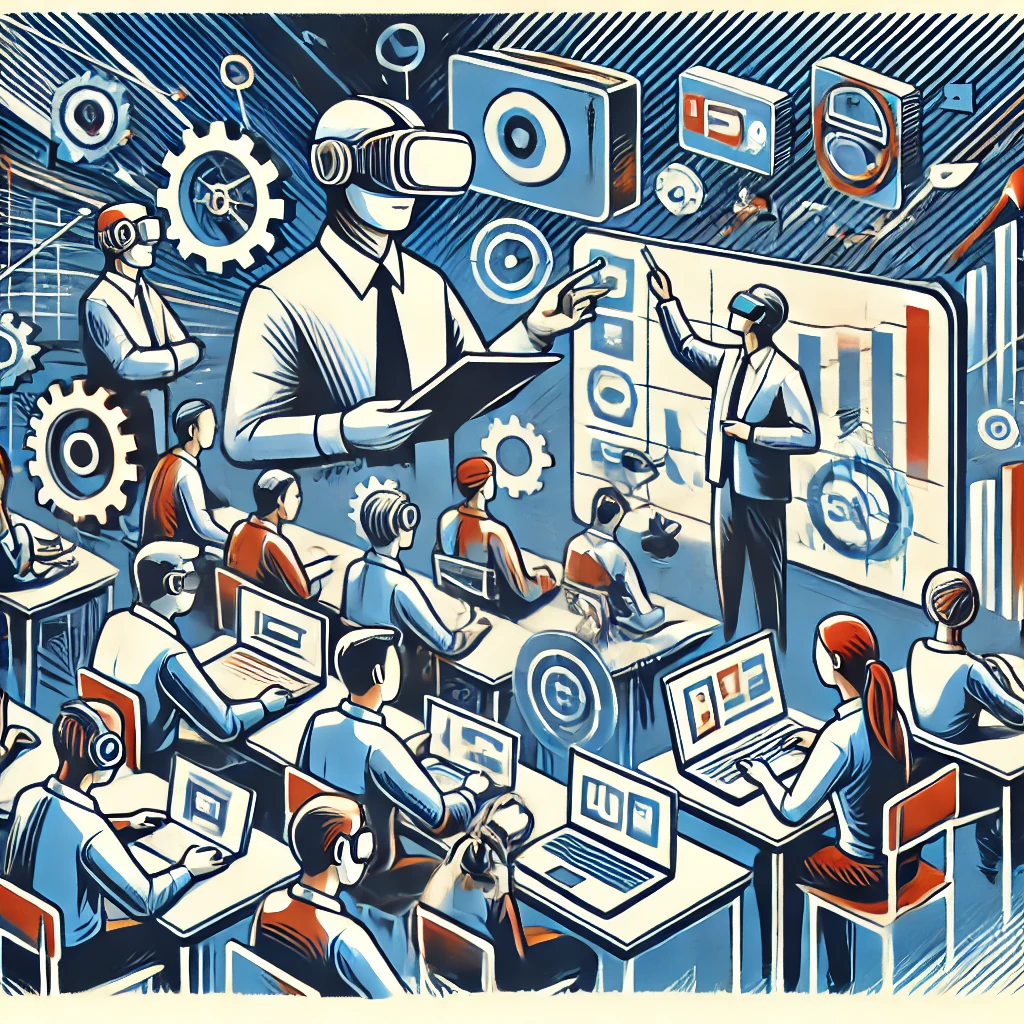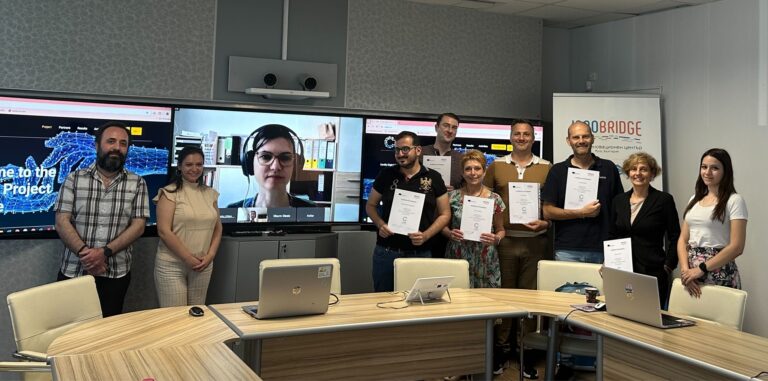The rapid pace of digitalization in society demands that vocational teachers remain vigilant and adaptable, ensuring they are equipped to handle continuous changes in both workplace practices and educational methods. In a recent “Digital Transformation of VET” workshop, the difference among the rapid pace of technological development in industry and the slower rhythm of evolution in the education and training world was identified as a substantial hurdle by the experts (Herrero et al, 2024). Consequently, vocational teachers must be acutely aware of these shifts and possess the skills necessary to address them effectively (Harteis, 2017).
In recent years, the integration of Information and Communication Technologies (ICT) in education has provided teachers with significant benefits, including enhanced student motivation, improved knowledge retention, and greater attention to diverse learning needs. This shift has made the mastery of digital skills by teachers a pressing challenge across the educational community. Teachers play a central role in this transformation, as they are tasked with implementing new ICT-based practices that go beyond merely transmitting information. Instead, they must adopt roles as advisors and facilitators, guiding students through the learning process while also serving as tutors, moderators, and counsellors. This is particularly crucial in vocational education, where it is essential to convey to future professionals the importance of digital transformation in addressing the challenges of the modern labour market. (Sánchez-Prieto et al., 2021.)
Vocational teachers face the dual challenge of acquiring digital skills in both pedagogical and organizational contexts while simultaneously keeping up with the digitalization trends within their specific professional fields. This requires teachers to be proactive in collaborating with workplace partners, ensuring they are familiar with the evolving work practices. Moreover, this transformation often necessitates that teachers let go of previously learned skills and embrace new knowledge and competencies, which can be a conscious and challenging process. (Alanko-Turunen, Heinilä, & Vainio, 2024.)
Despite the crucial role teachers play in the digital transformation of schools, institutional factors also significantly influence the success of this transition. It is vital to create the right conditions within educational institutions to fully leverage the advantages of technology and support teachers in their digital competence development. This institutional support is key to ensuring that the digital transformation in schools is not just implemented but also sustained effectively. (Cattaneo, Bonini, & Rauseo, 2021.)
The DIGAM study (Digitalization in Vocational Education) explored how digitalization impacts learning and skill development in vocational education. The study found that digitalization offers numerous pedagogical opportunities, such as more flexible learning, teaching, and guidance. Teachers highlighted the benefits of using video, image, and simulation applications in their teaching, as well as the improved accessibility and quality of learning materials. However, despite these advancements, the impact of digitalization on daily work practices within their own organizations remains surprisingly limited. (Koramo, Brauer, & Jauhola, 2018.)
In conclusion, while vocational teachers are key to driving digital transformation in education, they face significant challenges that require both personal commitment and institutional support. The future of vocational education depends on how well these challenges are met, ensuring that teachers are not only equipped with the necessary digital skills but are also supported in their ongoing professional development.
References:
Alanko-Turunen, M., Heinilä, H., & Vainio, V. (2024). Digitalisoituvien käytänteiden kehittäminen ammatillisessa koulutuksessa–digitalisaatiota ja tunteita yhteensovittamassa. (Developing digital practices in vocational education–integrating digitalization and emotions) eSignals Research 5(1).
Cattaneo, A. A., Bonini, L., & Rauseo, M. (2021). The “Digital Facilitator”: An Extended Profile to Manage the Digital Transformation of Swiss Vocational Schools. Digital Transformation of Learning Organizations, 169-187.
Harteis, C. (Ed.). (2017). The impact of digitalization in the workplace: An educational view (Vol. 21). Springer.
Herrero, C., Villar Onrubia, D., Cosgrove, J., Kluzer, S., Centeno, C., Castaño Muñoz, J., Romero Rodríguez, S., Moreno Morilla, C., Weikert García, L., Arroyo Sagasta, A., Zubizarreta Pagalday, A., Wisniewski, D. and Fabe, N., Digital Transformation of Vocational Education and Training (VET) Workshop, Publications Office of the European Union, Luxembourg, 2024, doi:10.2760/94528, JRC138603.
Koramo, M., Brauer, S., & Jauhola, L. (2018). Digitalisaatio ammatillisessa koulutuksessa. (Digitalization in vocational education) Finnish National Agency for Education, reports and studies 2018:9.
Sánchez-Prieto, J., Trujillo-Torres, J. M., Gómez-García, M., & Gómez-García, G. (2021). Incident factors in the sustainable development of digital teaching competence in dual vocational education and training teachers. European Journal of Investigation in Health, Psychology and Education, 11(3), 758-769.




